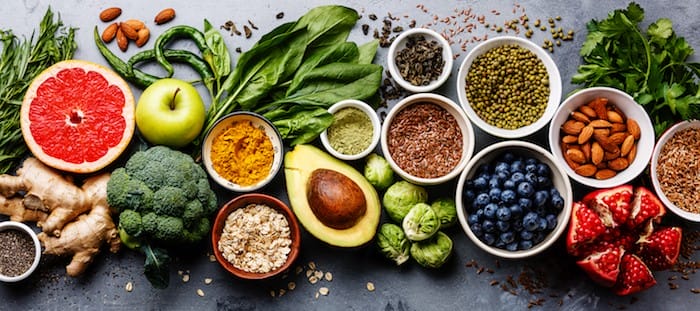Across our lifespan, proper nutrition will remain one of the top factors that helps prevent chronic illness and disease. In older adults, nutrition can play a role in increasing their quality of life. It is never too late to start making better nutritional choices and practicing healthy eating habits.
According to the Office of Disease Prevention and Health Promotion (ODPHP), despite having lower calorie needs, older adults generally have greater nutritional needs than younger adults. The older we get, the more changes we see in our bodies due to less physical activity, changes in metabolism, illness and more. For seniors, it is even more important to make every meal count and to prioritize healthy habits that maximize their quality and longevity of life.
As the Director of Dining for a senior living community, my team and I are fully aware older adults are at greater risk of chronic diseases, such as heart disease, high blood pressure, osteoporosis, diabetes and certain cancers. With that in mind, we design daily menus that are healthy and full of nutrient-dense food that can satisfy our residents daily dietary needs. This allows our senior residents to keep their immune system stronger, maintain their strength and body function, help minimize illness and/or health related issues.
What makes it hard to eat healthy as people age?
There are many variables that tie into the difficulty of maintaining a healthy diet as we get older. Many seniors are more likely to stick to food groups and meals they are familiar with. Changes in menu items can be confusing for them to understand or even read. In this case, it is important to have descriptive menu writing or provide access to nutritional descriptions that can help seniors with their meal decisions.
Another obstacle that seniors may face when trying to make healthy food choices are various medical or dental problems. At Kisco Senior Living, we do our best to design menus that offer alternatives for consuming healthier options, per doctors’ recommendations. We take into consideration our residents’ dietary restrictions. For example, low sodium menu options would be crucial for a resident with cardiac issues. Additionally, experimenting with various ways of cooking foods help seniors consume healthier options in a safe and enjoyable way.
What is the proper nutritional intake for seniors?
No matter what age you are, we all have a certain number of calories and macronutrients that are needed for our bodies to remain functional and healthy. According to the Dietary Guidelines for Americans, females ages 60 and older require anywhere from 1,600 to 2,200 calories per day and males ages 60 and older require between 2,000 and 2,600 a day. In certain cases, you may need to learn how to increase elderly appetite so that these caloric recommendations are being met. Regardless of someone’s current health status, race or ethnicity, selecting nutrient-dense food and beverage choices at this stage in life are crucial for mitigating the risk of malnutrition that many seniors face.
Seniors need to ensure they are getting more vegetables, fruits, grains, protein and dairy products into their daily food intake. These food groups are typically lower in calories but higher in volume, so in the case of dealing with a poor appetite, resorting to these foods will offer an optimized amount of nutrients in a small portion. However, protein is the most important food group that seniors should be prioritizing in their diets. It is recommended to consume anywhere from 50 to 175 grams of protein every day based on weight. This way muscles stay strong, and your body can fight off several health complications. We offer a wide variety of proteins for our residents to enjoy – going beyond animal and seafood options to plant-based proteins including beans and legumes, soy, tofu, quinoa, grains, and greens.
As we age and use certain medicines, our ability to absorb vitamins such as B12 significantly decreases due to a lack of enzymes that are needed to process the vitamins. B12 is essential to having healthy blood and a healthy brain. While oral supplements are the more favorable solution to combatting this deficiency, seniors can alternatively get this necessary vitamin through foods like beef, fortified cereal, tuna, salmon, milk and dairy products, and more.
To learn more about your estimated daily caloric intake, and a recommendation for nutritional intake, try out the Health and Medicine Division of the National Academies of Sciences, Engineering and Medicine’s Daily Reference Intakes (DRI) calculator.
It is never too late to start prioritizing your health. Choosing healthy foods is a huge step to increasing your quality of life and keeping your body and mind strong and vital.

Michael Tobias
Michael Tobias is Director of Dining Service at The Kensington at Walnut Creek, a Kisco Senior Living community.







